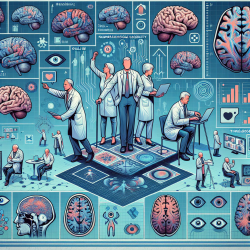Introduction
The COVID-19 pandemic has significantly altered our daily lives, affecting not only humans but also our interactions with animals. The research article titled The New Status Quo: Enhancing Access to Human–Animal Interactions to Alleviate Social Isolation & Loneliness in the Time of COVID-19 explores the impact of the pandemic on human-animal interactions (HAI) and offers insights into how these interactions can alleviate social isolation and loneliness.
Key Findings
The research highlights several key points:
- Human-animal bonds (HAB) have been recognized as powerful agents in reducing feelings of loneliness and social isolation.
- Animal-assisted interventions (AAI) have had to adapt to new strategies due to the pandemic.
- Increased pet ownership and the role of pets in providing emotional support during the pandemic.
Implementing Research Outcomes in Practice
As a practitioner focused on improving children's outcomes, you can leverage these findings in several ways:
1. Incorporate Animal-Assisted Interventions
Utilize therapy animals in your practice to help children cope with social isolation and anxiety. Therapy animals can provide comfort, reduce stress, and improve social interactions.
2. Promote Pet Ownership
Encourage families to consider pet ownership, especially for children who may benefit from the companionship and emotional support that pets provide. Highlight the positive impacts on mental health and social functioning.
3. Virtual Animal Interactions
For children who cannot have pets or are in environments where physical interaction with animals is not possible, virtual animal interactions can be a valuable alternative. Utilize video calls with therapy animals or virtual pet care activities to engage children.
Encouraging Further Research
The pandemic has underscored the importance of HAI, but there is still much to learn. Encourage further research in the following areas:
- The long-term effects of increased pet ownership during the pandemic.
- The impact of virtual animal interactions on children's mental health and social skills.
- Best practices for integrating therapy animals into educational and therapeutic settings.
Conclusion
The research on HAI during the COVID-19 pandemic provides valuable insights that can be applied to improve children's outcomes. By incorporating animal-assisted interventions, promoting pet ownership, and exploring virtual interactions, practitioners can help alleviate social isolation and enhance emotional well-being.
To read the original research paper, please follow this link: The New Status Quo: Enhancing Access to Human–Animal Interactions to Alleviate Social Isolation & Loneliness in the Time of COVID-19.










